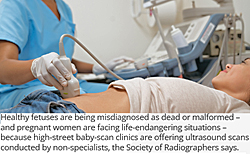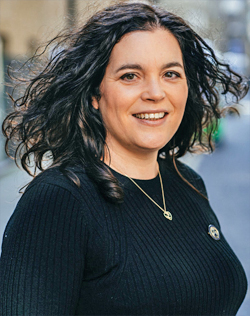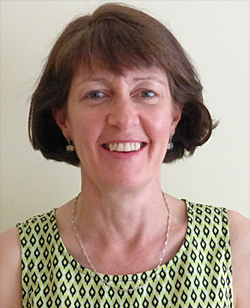Private Clinics Offering Early Baby Scans Risks Expectant Mothers Health
Encouraged by the 'In-thing' of baby sexing scans and 'gender reveal parties'
Some high-street baby scan clinics are endangering mothers and their unborn children by allowing unqualified, non-specialist staff to carry out ultrasound scans, the Society of Radiographers (SoR) has warned.
 The union says its members have seen cases where pregnant women were wrongly told they had serious medical problems or were given dangerous, misleading advice.
The union says its members have seen cases where pregnant women were wrongly told they had serious medical problems or were given dangerous, misleading advice.
In several instances, expectant mothers were advised to seek terminations after being told their babies were abnormal—only to later discover their pregnancies were entirely healthy.
In their press release of 2nd November, the SOR are blunt and factual in stating:
"Healthy fetuses are being misdiagnosed as dead or malformed – and pregnant women are facing life-endangering situations – because high-street baby-scan clinics are offering ultrasound scans conducted by non-specialists."
The SoR says the problem stems from the fact that anyone with an ultrasound machine can call themselves a sonographer and offer private scans, often marketed as reassurance, souvenir, or gender-reveal services, before the NHS’s standard 20-week check.
Elaine Brooks, Midlands regional officer for the SoR said:
“One time, we had a lady referred from a private clinic who was eight or nine weeks pregnant. The sonographer at the private clinic said there was no heartbeat and that the baby was very malformed, and they sent her for an induced miscarriage. When we scanned her, she was in tears—but the scan showed a perfectly normal nine-week pregnancy with a heartbeat. It was absolutely fine.”
A BBC investigation in 2020 uncovered similar failings in some private baby scan services, including cases where women who were bleeding or in pain were scanned privately rather than being told to contact their GP or hospital.
The SoR, which represents professional radiographers, said its members had witnessed a range of unsafe and unethical practices at certain private clinics, including:
* Serious abnormalities such as spina bifida or polycystic kidneys being missed.
* Ectopic pregnancies being misdiagnosed or overlooked entirely.
* A radiographer struck off for sexual misconduct continuing to operate as a private sonographer.
 SoR president Katie Thompson said while many private providers uphold high standards, she was particularly alarmed by the rapid growth of pop-up scanning services on high streets and in shopping centres.
SoR president Katie Thompson said while many private providers uphold high standards, she was particularly alarmed by the rapid growth of pop-up scanning services on high streets and in shopping centres.
“There are some really great private services with trained staff,” she said. “But others are unregulated and offer souvenir or sexing scans with minimal checks or professional oversight.”
“When people go for a scan or any kind of diagnostic test, they assume that the person they’re going to see is qualified to do it,” says Ms Thompson. “They don’t realise that anybody can buy a machine and call themselves a sonographer.
“With registration, no-one would be able to call themselves a sonographer unless they were on that register. And if there was a problem or a complaint, the patient would be able to refer them to their regulatory body.”
And if a complaint were made and the sonographer deemed unfit to practise, they would no longer be allowed to call themselves a sonographer. “Registration protects the patient,” she says.
Thompson added that one mother had lost her baby after a private clinic failed to note that the child was breech late in pregnancy and did not refer her to the NHS.
Shocking Errors And Health Risks to Mothers and Babies
Gill Harrison, the SoR’s professional officer for ultrasound, said:
“Patients often don’t know who’s conducting their scan. Many are appalled when they realise that someone with no qualifications, or who has been struck off a professional register, can still perform their ultrasound scan.”
 There are also dangers to both mother and fetus from the high-frequency sounds emitted by an ultrasound machine. “If you scan for too long on a very early pregnancy, or use the wrong settings, it can initiate thermal effects that can generate heat in fetal tissues,” says Ms Brooks. “And it’s important that machines are regularly serviced – which in the past I’ve found some private clinics don’t do.”
There are also dangers to both mother and fetus from the high-frequency sounds emitted by an ultrasound machine. “If you scan for too long on a very early pregnancy, or use the wrong settings, it can initiate thermal effects that can generate heat in fetal tissues,” says Ms Brooks. “And it’s important that machines are regularly serviced – which in the past I’ve found some private clinics don’t do.”
The SoR is therefore calling for sonographer to become a protected title – which would mean that only those who are properly qualified and registered with the appropriate regulatory body would be allowed to call themselves a sonographer. Existing protected titles include dietician, podiatrist, art therapist and hearing-aid dispenser – and radiographer.
If sonographer was a protected title, it would mean that only someone who has completed approved postgraduate qualifications in sonography, or a practitioner who has taken an accredited undergraduate degree course in sonography – approved and recognised by the regulator – would be allowed to call themselves a sonographer. This would help expectant parents to understand who was carrying out their scan – and what qualifications they had.
The most concerning case that SoR President, Ms Katie Thompson encountered also involved danger to the mother.
The woman was coming into the second trimester of her pregnancy, and the sonographer at the private clinic had told her that she had funnelling of the cervix – which is when the cervix starts to open. The woman had been told that she should go home and have two weeks’ bed rest.
“This is really outdated advice,” says Ms Thompson. “Firstly, she should have been referred to hospital for an internal scan to check that there was funnelling. And secondly, we don’t recommend bed rest for anyone, especially for two weeks – you’ll end up with a clot in your leg, if not in your lung.
Luckily, the lady went to her midwife, who gave her a follow-up scan, and she found no problem with the cervix. But if she’d followed the sonographer’s advice, it could have caused real problems.”
There are other risks to the mother, too. The Health and Care Professions Council has evidence of a sonographer who was struck off the professional register for radiographers for 10 years for sexually inappropriate misconduct. This meant that he could no longer practise in an NHS hospital – but he continued to work in private ultrasound clinics.
Call for Regulation
The SoR is calling for sonographer to become a protected professional title—similar to radiographer, podiatrist, or dietitian—so that only qualified and registered professionals could legally use it.
Although many private sonographers are trained midwives or radiographers, formal qualifications and registration are not currently required. Accredited training courses do exist, such as those approved by the Consortium for the Accreditation of Sonographic Education (CASE), but participation is voluntary.
Advice for Parents-to-Be
Expectant mothers considering private scans are urged to:
* Ask whether staff are CASE-accredited or professionally qualified.
* Check whether the clinic is registered with the Care Quality Commission (CQC) and when it was last inspected.
* Look up reviews and recommendations from trusted sources, including midwives or GPs.
Practitioners can also choose to join the Register of Clinical Technologists, which allows patients to verify their credentials—though this too is voluntary.
The Professional Standards Authority for Health and Social Care recently urged the government to consider stronger regulation, saying the public risks “appear sufficiently high” to justify change.
Regulators and Government Response
As might be expected, the response from Government and regulators was the usual glibb statement of empty words:
The CQC said many private ultrasound clinics provide good-quality care but acknowledged ongoing concerns over staff training, patient consent, and safety procedures.
“Where inspections identify concerns, we hold providers to account and make clear that action is required to ensure staff are adequately trained,” a CQC spokesperson said.
A Department of Health and Social Care spokesman added:
“The safety of patients is paramount. We will carefully consider any proposals from professional bodies regarding the regulation of healthcare professionals.”
Source: Society of Radiographers

